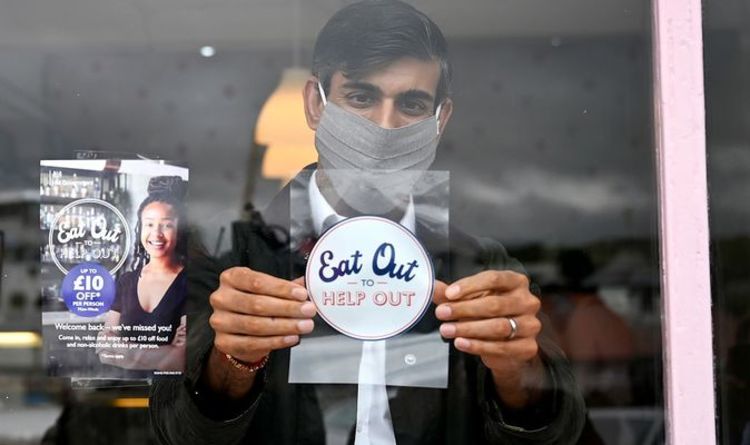Rishi Sunak told to step up in hospitality crash fears
We use your sign-up to provide content in ways you’ve consented to and to improve our understanding of you. This may include adverts from us and 3rd parties based on our understanding. You can unsubscribe at any time. More info
According to the Office for National Statistics (ONS) total national debt now stands at £2.3trillion or around 96.1 percent of gross domestic product (GDP). The last time national debt stood at a higher level was at 98.3 percent of GDP in March 1963. With the prospect of new restrictions now hanging over the economy again it’s possible further spending on support measures may be needed. Richard Carter, head of fixed interest research at Quilter Cheviot, warned there could be: “An Omicron-shaped black hole in the public finances, we just don’t yet know how big it could be.”
While November’s borrowing figures were below those of November last year Mr Carter added that the figures were “almost an irrelevance” if the Government were forced into further public health restrictions.
A large amount of the current debt has been acquired due to the cost of Government support during Covid while simultaneously seeing a fall in tax receipts.
Support for individuals and businesses such as the furlough scheme and grants contributed to an increase of £205.2billion in day to day spending for the financial year April 2020 to March 2021.
Meanwhile £36.6billion less was received from tax and National Insurance over the same period.


Groups representing hard hit industries such as the British Beer and Pub Association and the Night Time Industries Association have called for a reinstatement of furlough already due to the falls in customer numbers and confidence.
Think tank the Resolution Foundation have also suggested a version of furlough targeted at the worst hit firms, though they anticipate the cost would be around £1.4billion a month.
Mr Carter said: “The Chancellor has so far declined to offer any additional financial support to businesses, despite the advice to avoid as much social contact as possible.
“This will have to change if further restrictions are introduced, particularly if the new restrictions take the form of a fire-break lockdown.

“The furlough scheme was one of the largest and most expensive labour market interventions ever in the UK, costing around £70billion.
“Sunak would have hoped this was in the rearview mirror, but unfortunately it may well just have to come back out of retirement, albeit perhaps in a different form.”
AJ Bell financial analyst Danni Hewson warned that while there was “scope for the chancellor to borrow more” Mr Sunak would need to consider the cumulative effects.
Rishi Sunak has expressed a determination to cut taxes before the next election however further strains on the national debt and subsequent repayments could end up leaving this aim increasingly distant.
DON’T MISS:
City of London Brexit exodus fails to materialise [SPOTLIGHT]
Pubs grapple with key decisions over Omicron [ANALYSIS]
How Sotheby’s got into NFTs [REVEAL]

A large amount of the current debt was also taken on during a period of historically low interest rates making borrowing cheaper.
With the Bank of England voting to raise the base rate last week though there a signals the economy will start to move into a period of increasing interest rates.
According to today’s ONS figures interest payments on government debt were £0.4billion more in November this year than November 2020, largely due to increases in the inflation measuring Retail Price Index.
“There’s also the little issue of inflation to consider” added Ms Suter, “What would any potential measures do to the heat the country is already feeling?
“Every time that number rises it brings consequences, from upping the price ticket on those debt interest payments to squeezing household finances at a time the Chancellor is making his own demands on the public’s purses.”
Source: Read Full Article
